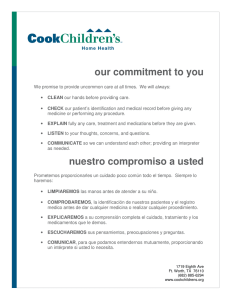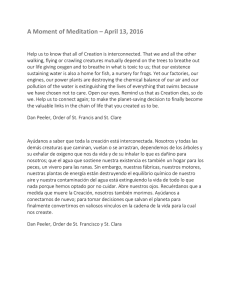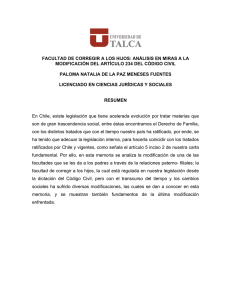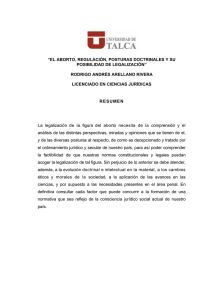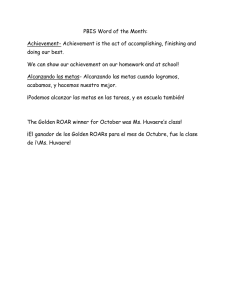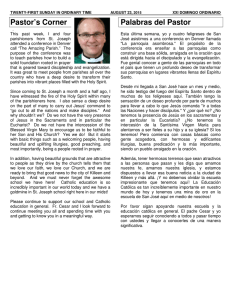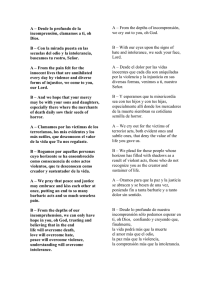Care with life
Anuncio
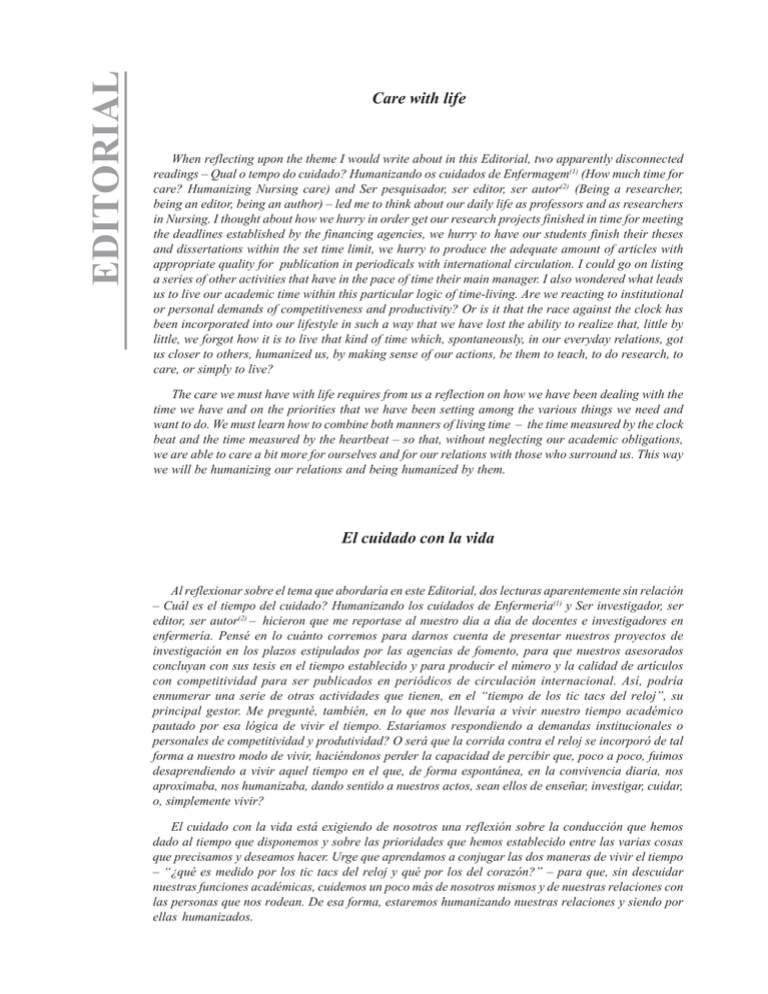
EDITORIAL Care with life When reflecting upon the theme I would write about in this Editorial, two apparently disconnected readings – Qual o tempo do cuidado? Humanizando os cuidados de Enfermagem(1) (How much time for care? Humanizing Nursing care) and Ser pesquisador, ser editor, ser autor(2) (Being a researcher, being an editor, being an author) – led me to think about our daily life as professors and as researchers in Nursing. I thought about how we hurry in order get our research projects finished in time for meeting the deadlines established by the financing agencies, we hurry to have our students finish their theses and dissertations within the set time limit, we hurry to produce the adequate amount of articles with appropriate quality for publication in periodicals with international circulation. I could go on listing a series of other activities that have in the pace of time their main manager. I also wondered what leads us to live our academic time within this particular logic of time-living. Are we reacting to institutional or personal demands of competitiveness and productivity? Or is it that the race against the clock has been incorporated into our lifestyle in such a way that we have lost the ability to realize that, little by little, we forgot how it is to live that kind of time which, spontaneously, in our everyday relations, got us closer to others, humanized us, by making sense of our actions, be them to teach, to do research, to care, or simply to live? The care we must have with life requires from us a reflection on how we have been dealing with the time we have and on the priorities that we have been setting among the various things we need and want to do. We must learn how to combine both manners of living time – the time measured by the clock beat and the time measured by the heartbeat – so that, without neglecting our academic obligations, we are able to care a bit more for ourselves and for our relations with those who surround us. This way we will be humanizing our relations and being humanized by them. El cuidado con la vida Al reflexionar sobre el tema que abordaría en este Editorial, dos lecturas aparentemente sin relación – Cuál es el tiempo del cuidado? Humanizando los cuidados de Enfermería(1) y Ser investigador, ser editor, ser autor(2) – hicieron que me reportase al nuestro dia a dia de docentes e investigadores en enfermería. Pensé en lo cuánto corremos para darnos cuenta de presentar nuestros proyectos de investigación en los plazos estipulados por las agencias de fomento, para que nuestros asesorados concluyan con sus tesis en el tiempo establecido y para producir el número y la calidad de artículos con competitividad para ser publicados en periódicos de circulación internacional. Así, podría ennumerar una serie de otras actividades que tienen, en el “tiempo de los tic tacs del reloj”, su principal gestor. Me pregunté, también, en lo que nos llevaría a vivir nuestro tiempo académico pautado por esa lógica de vivir el tiempo. Estaríamos respondiendo a demandas institucionales o personales de competitividad y produtividad? O será que la corrida contra el reloj se incorporó de tal forma a nuestro modo de vivir, haciéndonos perder la capacidad de percibir que, poco a poco, fuimos desaprendiendo a vivir aquel tiempo en el que, de forma espontánea, en la convivencia diaria, nos aproximaba, nos humanizaba, dando sentido a nuestros actos, sean ellos de enseñar, investigar, cuidar, o, simplemente vivir? El cuidado con la vida está exigiendo de nosotros una reflexión sobre la conducción que hemos dado al tiempo que disponemos y sobre las prioridades que hemos establecido entre las varias cosas que precisamos y deseamos hacer. Urge que aprendamos a conjugar las dos maneras de vivir el tiempo – “¿qué es medido por los tic tacs del reloj y qué por los del corazón?” – para que, sin descuidar nuestras funciones académicas, cuidemos un poco más de nosotros mismos y de nuestras relaciones con las personas que nos rodean. De esa forma, estaremos humanizando nuestras relaciones y siendo por ellas humanizados.
